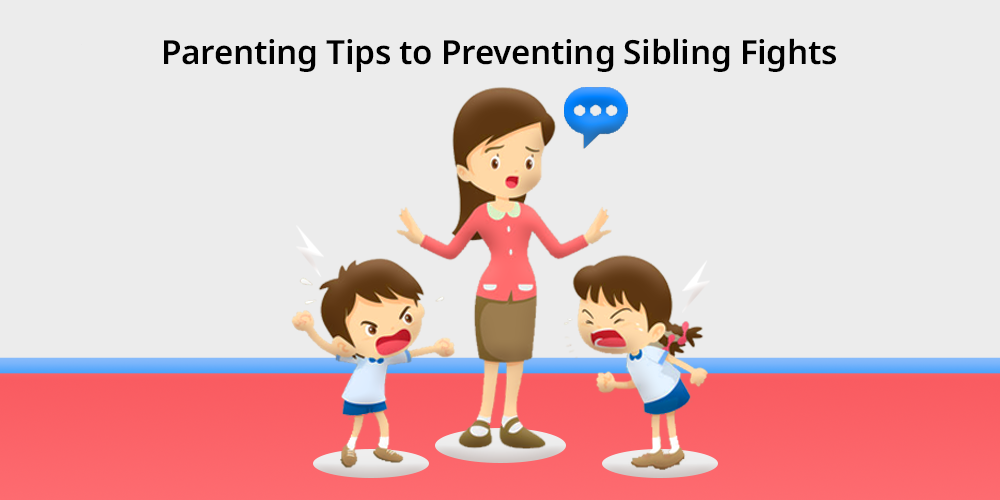
Are you also struggling with sibling fights at home and making you crazy?
Trust us you’re not alone! Well, it is completely normal for siblings to have small fights and sometimes big ones too. There are some situations which can create stress for both children and parents.
It is normal to have sibling fights and a part of growing up but for parents there are some effective ways to minimize conflict. It helps your kids to create positive relationships with each other.
So, in this blog we will share some practical parenting tips which make things easy for you. You can easily handle your kids’ fights and encourage them to promote a happy family. So, let’s get into the strategies and make things better!
Contents
- 10 Parenting Tips for Dealing with sibling Fights
- 1. Mediate sibling conflict
- 2. Model peaceful conflict resolution
- 3. Make the older sibling feel important
- 4. Avoid comparisons and Promote empathy
- 5. Show children how to get along
- 6. Avoid taking sides
- 7. Encouraging positive behavior
- 8. Let them Sort Things
- 9. Celebrate Their Own Speciality
- 10. Set clear family rules
- Looking Ahead
10 Parenting Tips for Dealing with sibling Fights
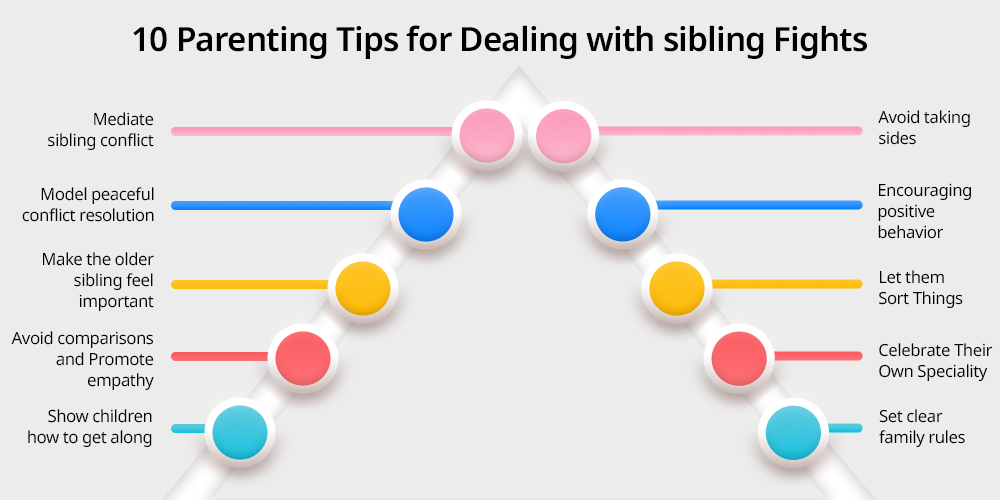
1. Mediate sibling conflict
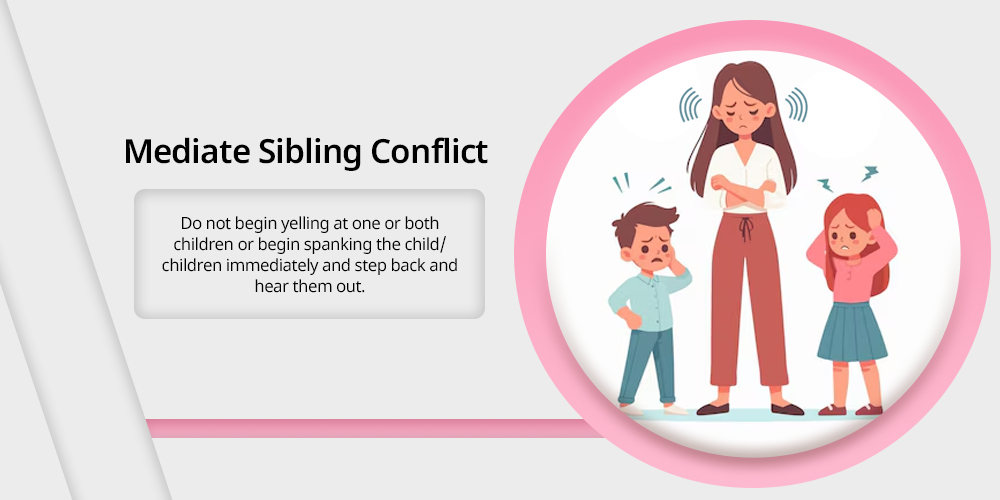
When siblings are fighting, it should not be just right that someone comes in to separate them and call it a day.
Do not begin yelling at one or both children or begin spanking the child/children immediately and step back and hear them out. And then tell each child to say what happened and how they feel.
It becomes a platform for both siblings to let off steam, and it also allows one to discover the crux of the matter. When you intervene, you help the children understand that both of them are valuable and that their emotions are significant.
2. Model peaceful conflict resolution
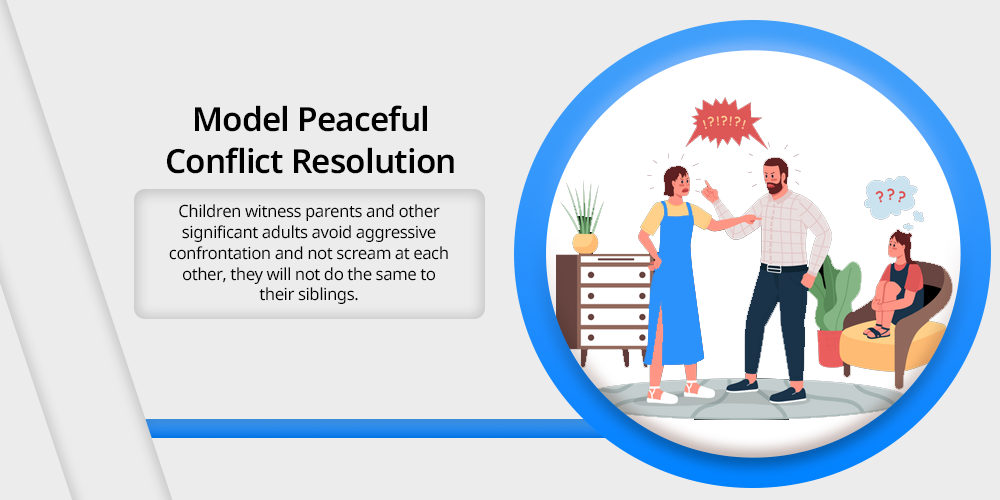
It is certainly well known that children learn or rather tend to mimic much more.
If you’ve been keen to see them sort out their problems without much aggression, try to practice patience in your own life. In case misunderstandings happen between you and your partner or just with different people.
Also Read: Best Practices of Showing Empathy Towards Students
Also make sure your children notice how to remain polite and listen to each other and come to a common decision.
Children witness parents and other significant adults avoid aggressive confrontation and not scream at each other, they will not do the same to their siblings.
3. Make the older sibling feel important
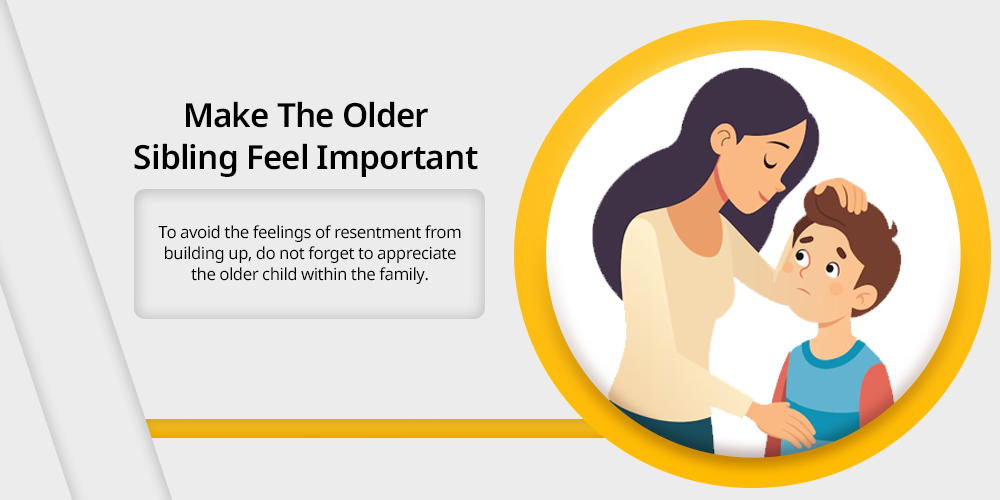
The older children have a certain duty of being responsible for their younger brothers or sisters, which may lead to frustration in case the younger one tends to be a nuisance.
To avoid all those feelings of resentment from building up, do not forget to appreciate the older child within the family.
Encourage them for the work done and let them contribute in any way possible, whether it is in completing their homework or supervising their little one for a while.
This recognition can also make them feel special while eliminating the chances of conflict that are often resulting from competition.
4. Avoid comparisons and Promote empathy

There is always this common tendency of parents to compare their children especially when one is more able or of a different attitude from the other.
However, when people make comparisons, they tend to feel jealous and compete with each other. Some examples of things to say to children include; never tell the child things like ‘Why can’t you be more like your brother?’
Rather, it should be centered on every child’s capabilities and talents. Promote empathy by making your children get to know how the other feels.
For example, if one child is angry, explain to the other how the angry child feels and what type of help he or she might need.
5. Show children how to get along
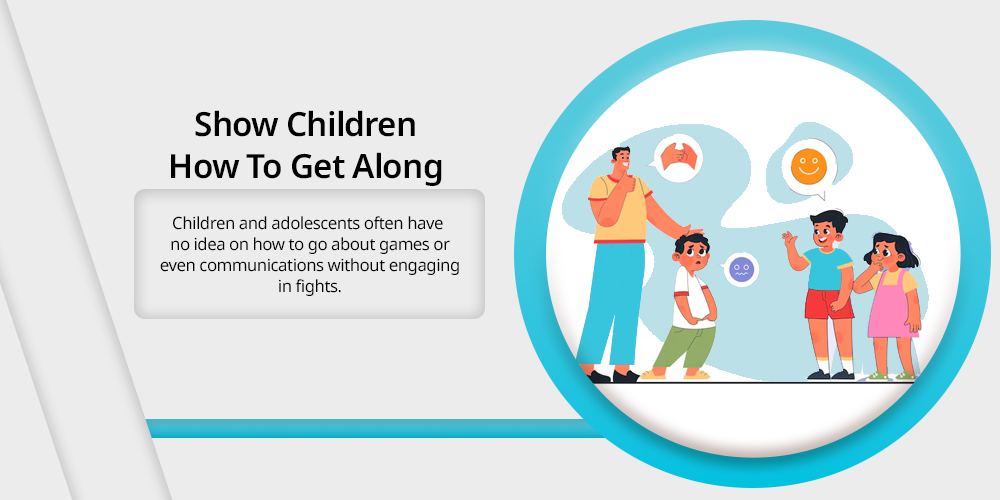
Children and adolescents often have no idea on how to go about games or even communications without engaging in fights.
The good news for parents is that you can help steer them in the right direction in learning how to handle the situation.
Coordinate roles that must be played in groups such as constructing a particular structure or a game that involves group handiwork.
Encourage them especially when they are doing it right as a team. In the long run, they will understand the importance of sharing, being patient, and working together so that many fights will not occur.
6. Avoid taking sides

If two children are fighting, it is almost embarrassing to watch, and as a parent, one of your major weaknesses is that you will always side with your own child when things get out of hand.
No one should be favored, whether feeling that one is right and the other is wrong, for this is a way of provoking resentment.
However, it is advisable to avoid taking sides and simply try to address the problems at hand and not the people.
Make them realize what they did wrong to each other and let the two find the way forward. This helps the learner understand right and wrong things as well as equal deserving of what happens among people.
7. Encouraging positive behavior
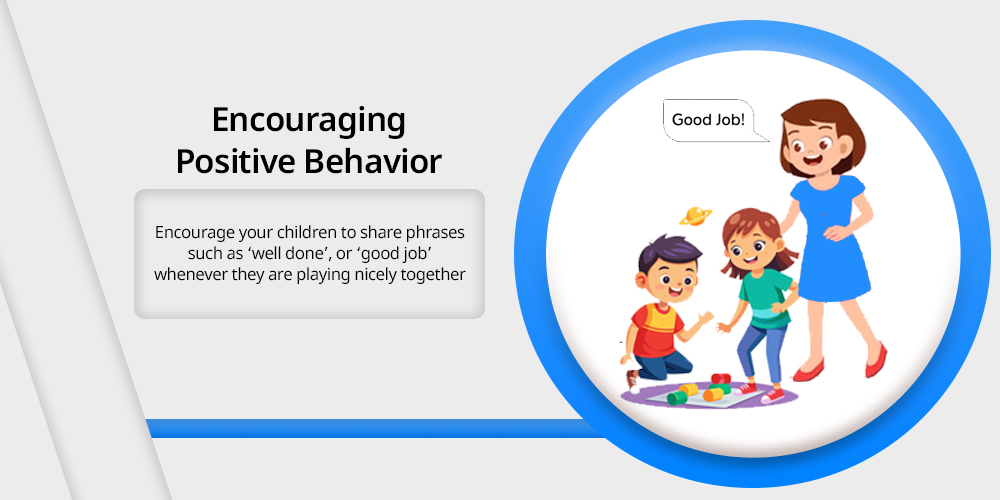
Instead of merely discouraging undesirable behavior, pay attention to encouraging desirable conduct.
Encourage your children to share phrases such as ‘well done’, or ‘good job’ whenever they are playing nicely together, sharing or handling a conflict in a civilized manner.
Use positive reinforcement when you want more of a behavior from your children and want them to do things that will help to enhance the peace.
For instance, you may use a points system, where children get points for positive interaction with their siblings, and these points are exchanged for a prize.
8. Let them Sort Things

It’s okay to give them space and let them sort their own fight and handle each other’s emotions. It is a very important thing and perfectly okay for them.
Being a parent you can look out them but its best them to sort their own.
It helps them to consider each other’s reactions and also enhance their sibling relationship. At the end they will learn to manage their things. The best they won’t feel like you are taking anyone’s side in their fight.
9. Celebrate Their Own Speciality

Two siblings can quarrel because both wish to be rewarded or to receive attention from the parents.
To dissipate this tension, each child ought to be allowed to come out and display why he or she is special from the rest of the other children.
Enclose some time for each child to be with their own interests or preferred activities with the other children.
Whether it is letting them decide what activities to get involved in or individual items. The perception that each child has worth beyond a competitor may make it easier to lessen rivalry and increase the tendencies to respect each other.
10. Set clear family rules

Advice to help maintain a happy relationship between siblings includes establishing and adhering to common acceptable behaviors and respect for one another.
All family members should be aware of all the rules and regulations, particularly those regarding communication, behaviors, and handling conflicts.
For instance, you could set a way that if two people are angry, they shouldn’t shout, and they should not use abusive language on each other.
Apply them strictly and impartially so that the children have something to remind them of the set rules and what is wrong for them to do.
Also Read: What is Effective Parenting | Focus on the Family
Looking Ahead
Problems between siblings will always occur, but it is not impossible to turn these confrontations into teaching moments.
When you meditate, immerse yourself and your children in the peaceful and empathic ways of solving disputes and you can guide your children in the best ways of conflict management.
Families should know that rivalry between siblings is not wrong and that this sentiment will help you to avoid conflicts and ensure that your child knows how to settle disputes peacefully.
